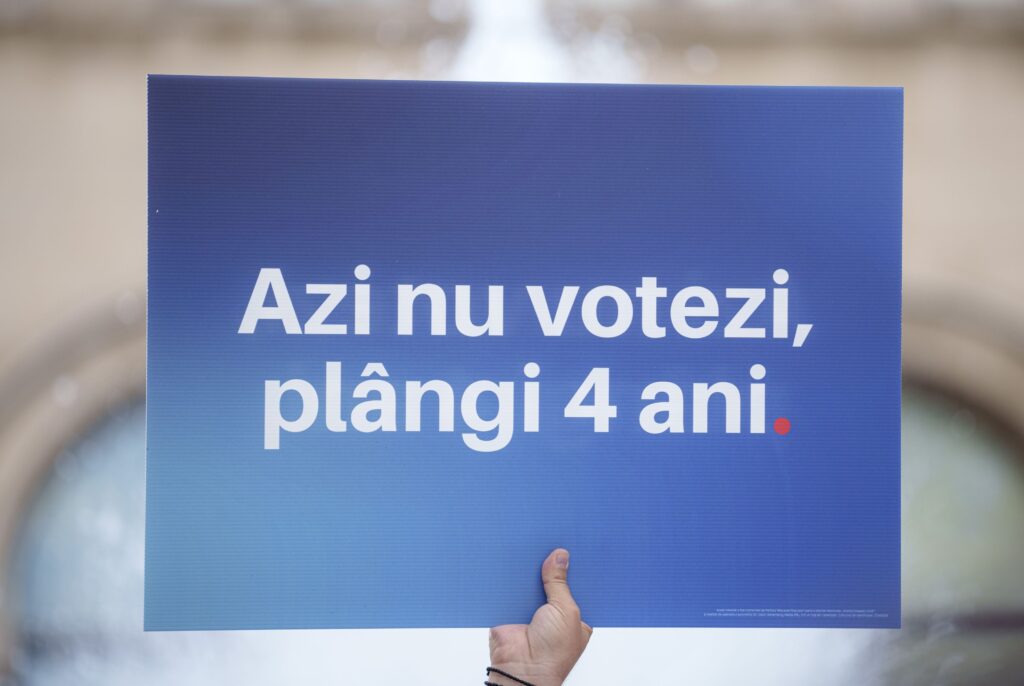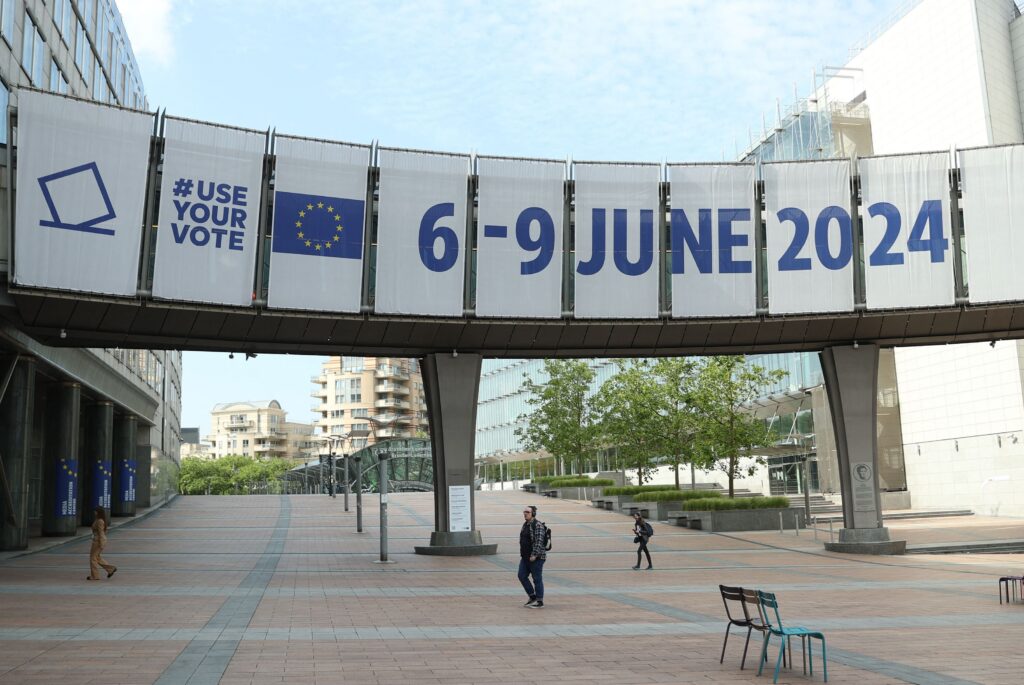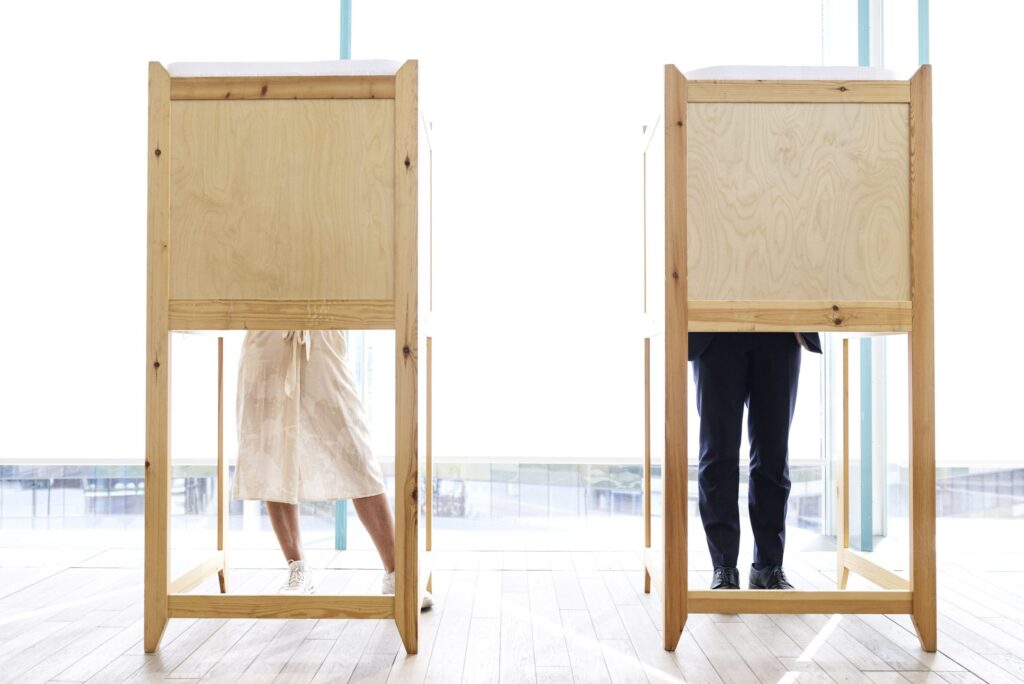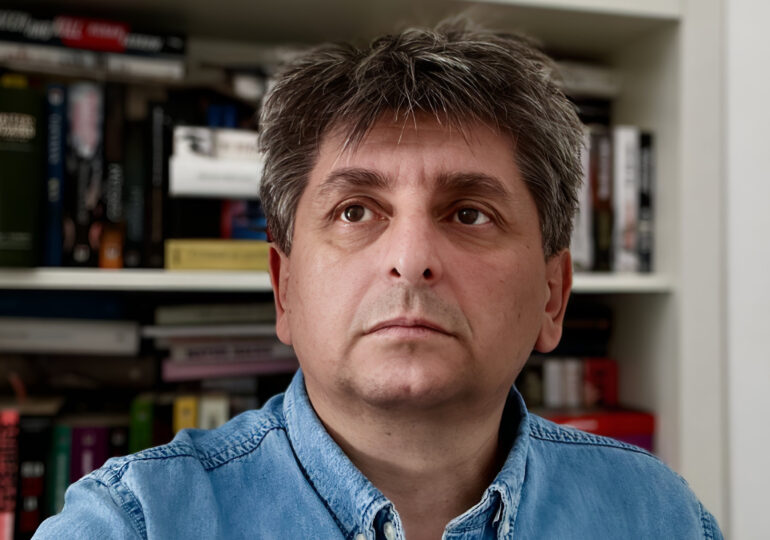My daughter is 19 years old and will vote for the first time. She will travel a long way from abroad to go to the polls, caught between exams at university and her first job.
Through a WhatsApp message, she asked me to explain to her the political situation in order to form an opinion.
That’s how I got the idea, I admit, a bit lacking in modesty, to write a text for all those who on Sunday begin their journey into the complicated, burdensome, and frightening world of adults. And they are not few.
Please take this article as it is. I don't have answers to all the questions. I don't know who will win, and I can't predict the future. My only quality is that for many years I have reported on political events from our country and around the world.
I am not among those who claim that voting is useless; on the contrary, I consider it a form of civic duty, responsibility, and often, a form of courage.
I admit that often, those who vote are faced with a difficult decision. They have to choose between imperfect individuals who have not managed to convince that they will act morally, ethically, and in the community's interest.
In fact, voting is similar to many other moments in our lives when we have to choose between two evils.
I would even say that most of the decisions we make fall into this category. Very rarely do we have the opportunity to choose between black and white, between good and evil, between lies and truth. Even then, quite quickly, the "positive character" can turn into the opposite. The truth is that reality is gray.

With Sunday's vote, those of you who express a political preference officially for the first time enter a gate where you will ask questions, but you won't receive many answers.
The world you are starting to shape is trapped between dictatorships and democracies.
Three decades after the fall of the Soviet Union, a new axis of authoritarianism has emerged, of political regimes that deny individual freedom, pluralism of ideas, and democratic leadership.
In Russia, China, Iran, North Korea, values such as human rights, personal initiative, creativity, and impartiality of justice are the main enemies of those who have been ruling these countries for decades.
In Romania, as well as in other democratic states, even though these values are recognized, enshrined in constitutions, we still have to fight for them every day.
Voting is one of the weapons. In a dictatorship, this fight is prohibited, predetermined, and opponents are eliminated.
Those who say that voting doesn't matter should talk to people in Russia, explain to them how much they yearn, after a quarter of a century under Vladimir Putin's thumb, to vote in a free country where the outcome is not known in advance and dissidents are not killed in broad daylight.
A single vote is like a grain of sand that, alongside others, turns into cement or seeps into a political mechanism that seems unbeatable and blocks it.
From a distance, it may not seem important, but placed there in the ballot box, among thousands of other votes, it indicates the direction in which a country is heading.
Even dictators need validation through voting. None, in the modern era, have abolished voting; they have only manipulated the results.
In Russia, China, Iran, voting takes place. Authoritarian leaders would have been the first to abolish this long, bureaucratic, and costly process if it were not important. On the contrary, those rigged votes are the foundation of that discretionary power.
And in a democracy, political groups want, and many aim, to steal votes, to buy or falsify them.
It is a continuous struggle between those who want to deceive and those who try to maintain the integrity of elections.
Do not harbor illusions; integrity, to a large extent, is ensured by political competition. The best guardians of the ballot boxes are representatives of parties who suspect each other of theft.
That's why it is important for polling stations to have designated individuals from all political parties participating in the elections, as well as observers, meaning independent representatives of public opinion.
Paradoxically, in democratic states, there is much talk and writing about vote theft, although it occurs the least compared to dictatorships where it is not discussed at all, and authority figures pull the result out of their hat after a rigged electoral process, a result known in advance.
Why is voting important? Because at any moment, especially in a population with low voter turnout, a democracy can slide towards authoritarianism and dictatorship. Hungary is the best example.

Viktor Orban took advantage of the nationalist frustration of many Hungarians, as well as their lack of social appetite, and has been ruling the country for almost 20 years, managing a corrupt political regime that has taken over all the country's resources.
A society needs leaders, guidance, and people to make decisions, but do not get too excited in front of politicians.
It is not wise to attribute qualities to them that they do not possess or your own aspirations. They will disappoint you.
In my opinion, the relationship between citizens and politicians should be pragmatic.
They come before the voters and say what they can and will do if they obtain the position they are running for, and we vote for them, hoping they will keep their word.
That is why it is very important for society to have civic, legal, and political mechanisms to alert, hold accountable, and punish leaders who do not keep their promises and show bad faith.
Politicians tend to promise more than they can deliver, they want to stay in power as long as possible, lie easily, and forget what they said during the campaign.
And perhaps, the most important thing, many of them have the damaging tendency to tell voters what they want to hear.
On the other hand, a politician has two major fears: of voters and of law enforcement.
The day a political leader is completely devoid of arrogance, fearful, and at the citizens' disposal is election day, and the most decent politicians, willing to communicate, connect with voters, and listen to them, are those in the Opposition. Once they come to power, they change - they become inaccessible, have other responsibilities, other priorities, and other fortresses to defend.
In my opinion, the simplest criterion for voting knowledgeably is to choose politicians who have not been accused of corruption, do not have a murky past, and answer questions.
The second criterion should be the political color, the values promoted by the party they belong to, the group, or the respective candidates.
Never vote based on subjective or aesthetic criteria: looks good, dresses elegantly, speaks nicely, etc.
According to data published by the Permanent Electoral Authority, over a million young people will be able to vote for the first time on Sunday.
It is an impressive number, and if only half of them exercise their right to vote, the political system in Romania can undergo a fundamental transformation.

Romania has changed a lot since May 20, 1990, the day I voted freely for the first time.
I remember waiting in line for a long time, about two hours, and I had great hope that Iliescu would lose. Oh, how wrong I was.
I thought it was impossible for people not to see what happened during the Revolution, the two miners' riots that annihilated the influence of historical parties, the fact that only another communist faction had come to power, and that they wanted anything but the democratization of the country.
Voters decided that the country should be led by the first political figure who appeared on television after Nicolae Ceaușescu's escape.
The fear of instability and the unknown world we were heading towards were stronger than the truth.
It's a lesson I learned then and I believe it is still valid today.

